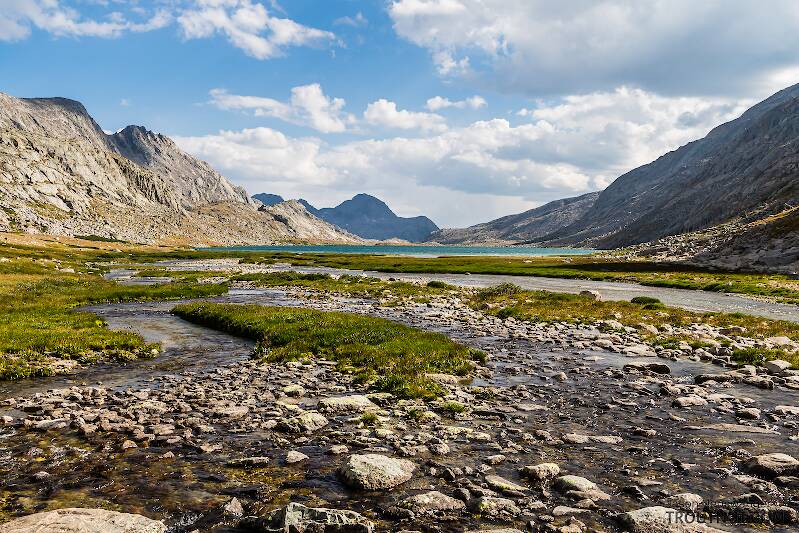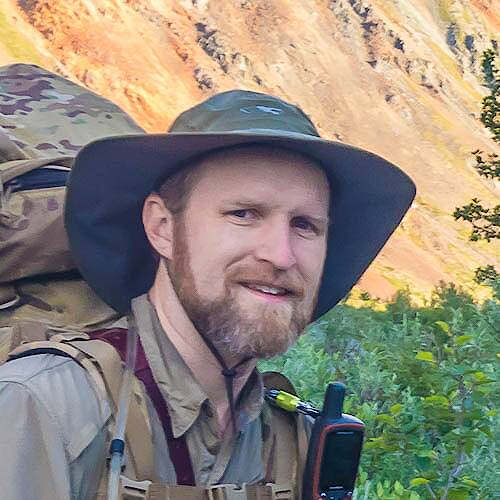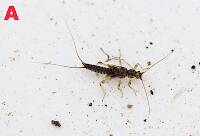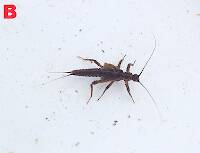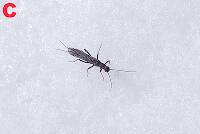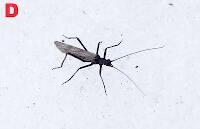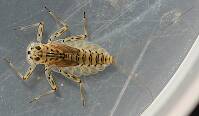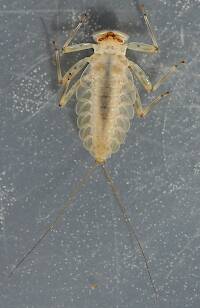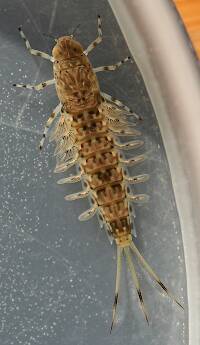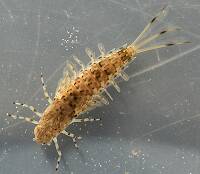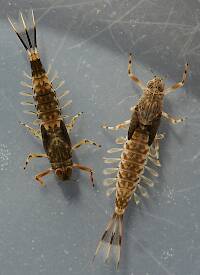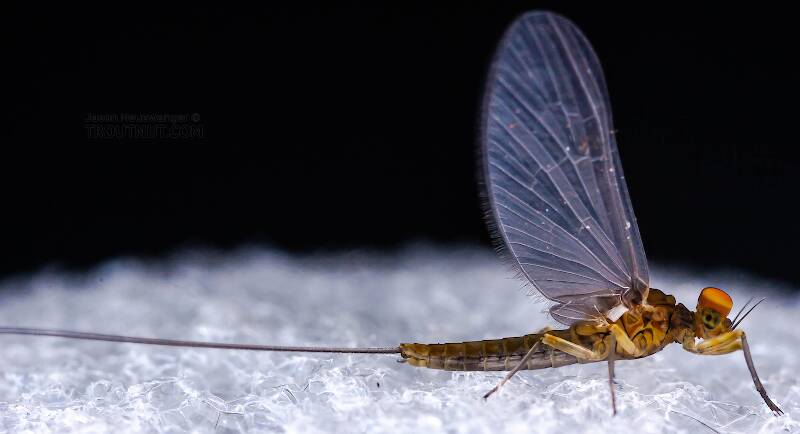
Blue-winged Olives
Baetis
Tiny Baetis mayflies are perhaps the most commonly encountered and imitated by anglers on all American trout streams due to their great abundance, widespread distribution, and trout-friendly emergence habits.
Featured on the forum
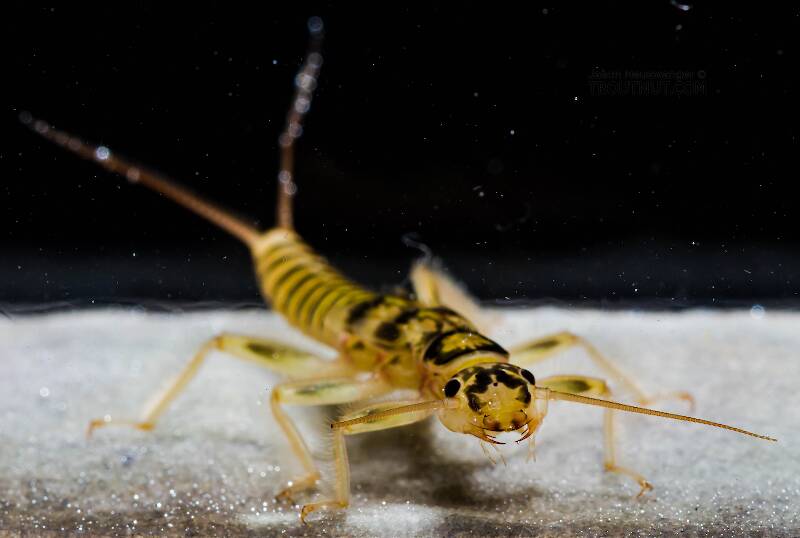
This one seems to lead to Couplet 35 of the Key to Genera of Perlodidae Nymphs and the genus Isoperla, but I'm skeptical that's correct based on the general look. I need to get it under the microscope to review several choices in the key, and it'll probably end up a different Perlodidae.

Troutnut is a project started in 2003 by salmonid ecologist Jason "Troutnut" Neuswanger to help anglers and
fly tyers unabashedly embrace the entomological side of the sport. Learn more about Troutnut or
support the project for an enhanced experience here.
Troutnut on May 21, 2007May 21st, 2007, 10:07 am EDT
I've been eagerly awaiting this book ever since I heard a couple years ago that Ernest Schwiebert was working on a new edition of Nymphs. His writing was so insightful in his original entomology books 40+ years ago; I can't wait to his take on new developments in the sport like synthetic materials and all the new tying styles, as well as the wisdom he picked up in the decades since his work was first published.
June 1, 2007: Nymphs Volume I: Mayflies: The Major Species - 672 pages!
Book description from Amazon:
July 1, 2007: Nymphs Volume II: Caddisflies, Stoneflies, and Other Important Insects: Including the Lesser Mayflies - 800 pages!
Book description from Amazon:
I'm going to preorder the first volume, then order the second as soon as I have a set shipping address after I move to Alaska.
June 1, 2007: Nymphs Volume I: Mayflies: The Major Species - 672 pages!
Book description from Amazon:
For the fly fisher seeking to catch more and bigger trout, fishing nymphs--patterns that mimic the larval stage of mayflies--can be a surefire approach. Nymphs: The Mayflies, the first volume in a totally revised edition of the 1973 original, is the singular authority on identifying the myriad species of mayfly larvae and tying imitations that will attract trout all across the country.
Author Ernest G. Schwiebert spent the last fifty years of his life traveling, fishing, and gathering information on scores of mayfly species across the country. The 1973 edition of Nymphs set forth his initial findings. Now in this wholly revised and expanded form, Schwiebert's last work offers the reader exacting details of every major mayfly species for the sake of identification, along with recipes for dozens of fly patterns to imitate them.
This new edition also contains numerous stories and anecdotes from Schwiebert's travels, some never set down in writing before, that further add to the understanding of how to choose, cast, and fish nymphs, and life.
July 1, 2007: Nymphs Volume II: Caddisflies, Stoneflies, and Other Important Insects: Including the Lesser Mayflies - 800 pages!
Book description from Amazon:
After the mayfly family, detailed in Nymphs: The Mayflies, the fly fisher must know the caddisfly, stonefly, and midge populations just as well to catch trout that are keyed in on such insects. Nymphs: Caddisflies, Stoneflies, and Other Important Species gives the reader all the essential information about identifying individual species of these insects throughout their North American range, and then delves into detailed instructions for scores of artificial patterns to imitate them. Few books in fishing literature have focused so closely on so many individual species of the particular genera of aquatic insects in this volume.
And just as in Nymphs: The Mayflies, this book contains numerous stories and anecdotes from Schwiebert's travels that illuminate the selection and use of nymph patterns, and recount great days spent on the water as interpreted through one of the great minds of modern fly fishing.
I'm going to preorder the first volume, then order the second as soon as I have a set shipping address after I move to Alaska.
Jason Neuswanger, Ph.D.
Troutnut and salmonid ecologist
Troutnut and salmonid ecologist
Troutnut on Jun 10, 2007June 10th, 2007, 8:18 am EDT
Damn, it's June 10th and the book is still not available. Amazon sent me an email saying it would be delayed, but they didn't say for how long. Volume II is still due out on July 1st but I find it hard to believe they'll meet that deadline either.
Jason Neuswanger, Ph.D.
Troutnut and salmonid ecologist
Troutnut and salmonid ecologist
Taxon on Jun 15, 2007June 15th, 2007, 1:34 pm EDT
Jason-
Finally broke down and ordered Volume I from Amazon. A friend of mine received Volume I from another internet bookseller several days ago, but he paid a lot closer to retail price for it. The ship date that came up on my order was July 1, with an estimated (standard) delivery of July 6-10.
Finally broke down and ordered Volume I from Amazon. A friend of mine received Volume I from another internet bookseller several days ago, but he paid a lot closer to retail price for it. The ship date that came up on my order was July 1, with an estimated (standard) delivery of July 6-10.
Quick Reply
Related Discussions
Topic
Replies
Last Reply
4
Sep 13, 2007
by Gene
by Gene
2
Mar 20, 2007
by Taxon
by Taxon
6
Jun 4, 2016
by Creno
by Creno
8
Aug 28, 2011
by Sayfu
by Sayfu

